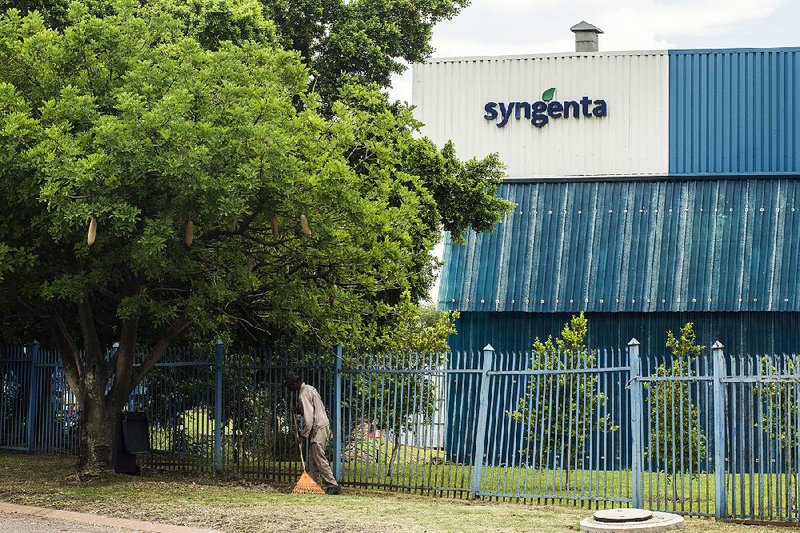Six months ago, Syngenta said no to a $47 billion takeover attempt from Monsanto, arguing it was too risky.
But times have changed. Commodities prices have slumped, decreasing the chances of a big payday for Syngenta, one of the world's biggest manufacturers of agricultural chemicals and seeds. China is on the hunt for strategic resource deals to provide for the long-term security of its huge population.
So when the state-owned China National Chemical Corp. offered to buy Syngenta for $43 billion -- but leave Syngenta's Swiss headquarters and management in place -- the answer was an enthusiastic yes.
The transaction, announced Wednesday, would be the largest acquisition of a foreign company by a Chinese business and the latest in a string of deals by the company, known as ChemChina. It also would be the biggest cross-border deal involving an Asia-Pacific company, according to data from Dealogic.
Under the terms of the deal, ChemChina would pay $465 a share, plus a special dividend of about $4.90 upon closing.
Syngenta's board of directors said it was unanimously recommending that Syngenta's shareholders accept the offer.
As part of the agreement, Syngenta would remain mostly independent and continue to be run by its existing management. The all-cash deal requires at least two-thirds of Syngenta's shareholders to agree to sell their stock to ChemChina.
"The easiest way to say it is that Syngenta will remain Syngenta," Michel Demare, the Syngenta chairman, said in a video posted to the company's website. "We will keep the same name. We will continue to be headquartered in Switzerland. And customers around the world will still have access and be offered the same range of innovative products that will help them increase their productivity and their yields."
Syngenta, based in Basel, is one of the world's largest producers of agricultural chemicals, including insecticides, fungicides, herbicides and seeds. The company reported sales of $13.4 billion in 2015 and employs more than 28,000 people in more than 90 countries.
It was created in November 2000 by the merger of the agribusinesses Novartis and AstraZeneca.
The deal comes as China grapples with its long-held resistance to genetically modified crops. China generally does not allow the growth of genetically modified crops for human consumption, though its farmers and processors use them for oils and animal feed. Genetically modified crops face widespread public skepticism in a country where food quality is a constant fear.
Still, China has taken steps to nurture a homegrown genetically modified crop industry. Two years ago it also began to make public efforts to ease that skepticism -- a function of a time when it may need modified crops to feed its growing population.
The country pulls out nearly one-third less wheat, corn or other grains per acre than the United States, according to United Nations data. A smaller portion of its land is arable because of overcrowding, a harsh environment in the country's western region and pollution.
Even within its farmland, China struggled with its legacy of industrialization, fast growth and lax regulatory enforcement -- in 2014 authorities said nearly one-fifth of its arable land was polluted. Those factors have spurred China to rely increasingly on imports, stoking concern among some officials in Beijing about dependence on foreign supplies of food.
The ChemChina deal still probably will face significant regulatory scrutiny, particularly in Europe and the United States. But its structure offers Syngenta a degree of independence that was unlikely in a deal with Monsanto.
Under the plan, four of Syngenta's existing directors would be part of its new 10-member board, and ChemChina said it would seek to list publicly a minority stake in Syngenta down the road.
The question remains whether regulators will block the deal, particularly in the United States. North America accounted for about 27 percent of Syngenta's sales in 2015.
Because of Syngenta's presence in America, the Committee on Foreign Investments in the United States, a government panel that reviews takeovers by foreign buyers, probably will take a close look at the transaction.
"ChemChina and Syngenta are highly complementary businesses with relatively limited overlaps in products," Ren Jianxin, ChemChina's chairman, said in a video. "We will work closely with all of the regulatory agencies involved, and we are confident that we will receive regulatory approval."
Business on 02/04/2016
